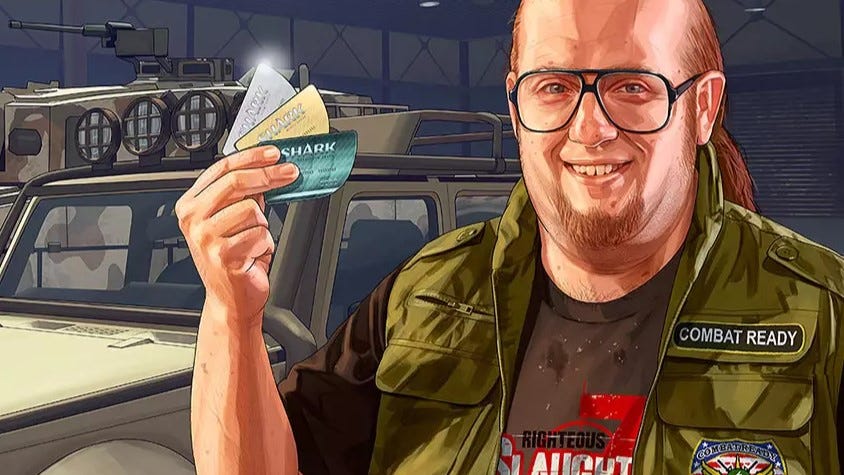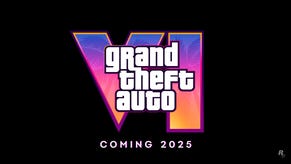GTA 6 publisher CEO thinks videogame prices are "very, very low" for what they offer
But that doesn't mean publishers have the power to raise them
Speaking to investors in an earnings call this week, GTA 6 publisher Take-Two's CEO Strauss Zelnick had a bit to say about the eternally uncontroversial topic of videogame prices. In news worth holding the press for, he thinks they're pretty cheap for what you get in return.
Zelnick cautioned one investor against "generalising" about the state of game pricing based on the recent fortunes of TV and movie subscription services like Netflix, which have had to increase subscription fees to match their expenses after underpricing themselves initially to grow their audiences. Videogames might be all about subscription services these days, Zelnick said, but that doesn't mean they are subject to the same commercial logics as ye olde non-interactive media. In particular, it doesn't mean publishers are currently able to raise videogame prices, even if they feel like they're overdelivering.
By way of explanation, Zelnick shared a little of Take-Two's own methodology for calculating videogame prices (be warned that the following sentence may give you a headache). "In terms of pricing for any entertainment property, basically the algorithm is the value of the expected entertainment usage, which is to say that the per-hour value times the number of expected hours, plus the terminal value that's perceived by the customer in ownership if the title is owned or subscribed to," he said.
Let me try to simplify that for us non-C-suite-based lifeforms: price is about the relationship between what you get per hour, how many hours you can expect to get, and what you perceive to be the overall value of the thing you're playing, watching, etc.
"You'll see that, that bears out in every kind of entertainment vehicle," Zelnick went on. "By that standard, our frontline prices are still very, very low because we offer many hours of engagement. The value of the engagement is very high. So, I think the industry, as a whole, offers a terrific price-to-value opportunity for consumers."
"That doesn't necessarily mean that the industry has pricing power or wants to have pricing power," he added. " However, there is a great deal of value offered. And look, it's our strategy here to deliver much more value than what we charge consumers. It's always been our strategy here.
"We want to make sure the experience is first-class, and the nature of the experience is not just the quality of what we offer, it's also what you pay for it," Zelnick continued. "Everyone knows that anecdotally. So that's how we look at it. There have been precious few price increases in the business. The price increase, for example, the $70 for certain frontline products was the first price increase in many years after many generations. So again, I think we offer a terrific value to consumers."
Zelnick is far from the only multi-millionaire exec who thinks blockbuster commercial games are considerably underpriced, though he seems relatively relaxed about it, possibly because he's in charge of the company making Grand Theft Auto.
In September, Capcom’s president Harushiro Tsujimoto gave a speech at the Tokyo Game Show (thanks Kotaku) claiming that videogame prices are "too low" given that, according to Tsujimoto, development costs are now "100 times" higher than during the Famicon era. "There is also a need to raise wages," he added. "Considering the fact that wages are rising in the industry as a whole, I think raising unit prices is a healthy option for business."
Update 18th November 2023: A Take-Two spokesperson has requested that I clarify that Strauss Zelnick did not actually suggest during the earnings call above that the industry should adopt a new pricing model for core games – specifically, he did not suggest that the industry charge hourly rates for core games.

















